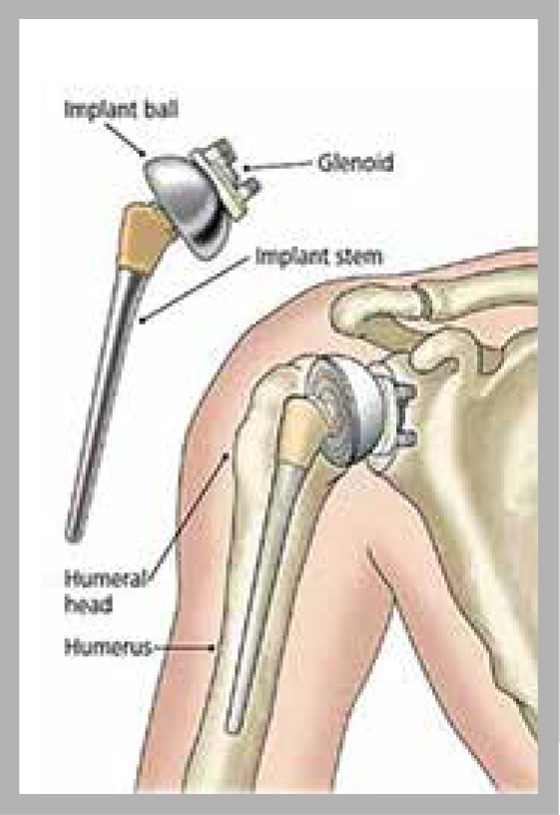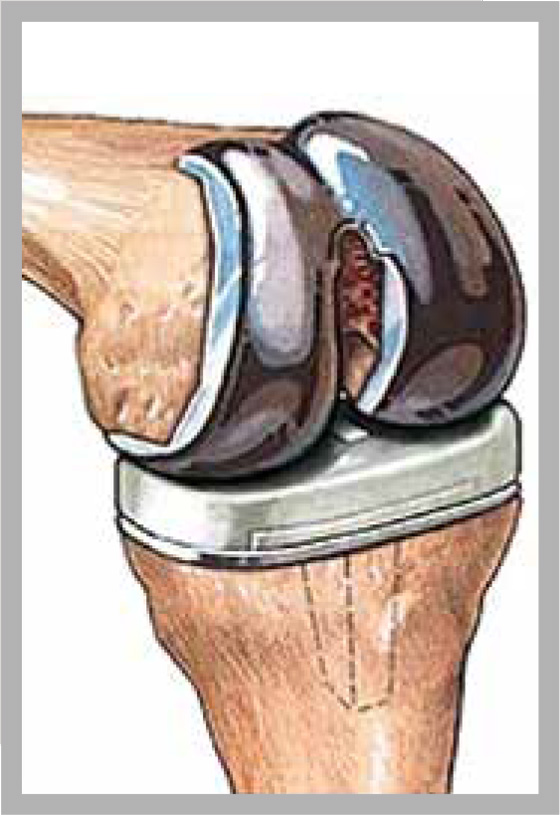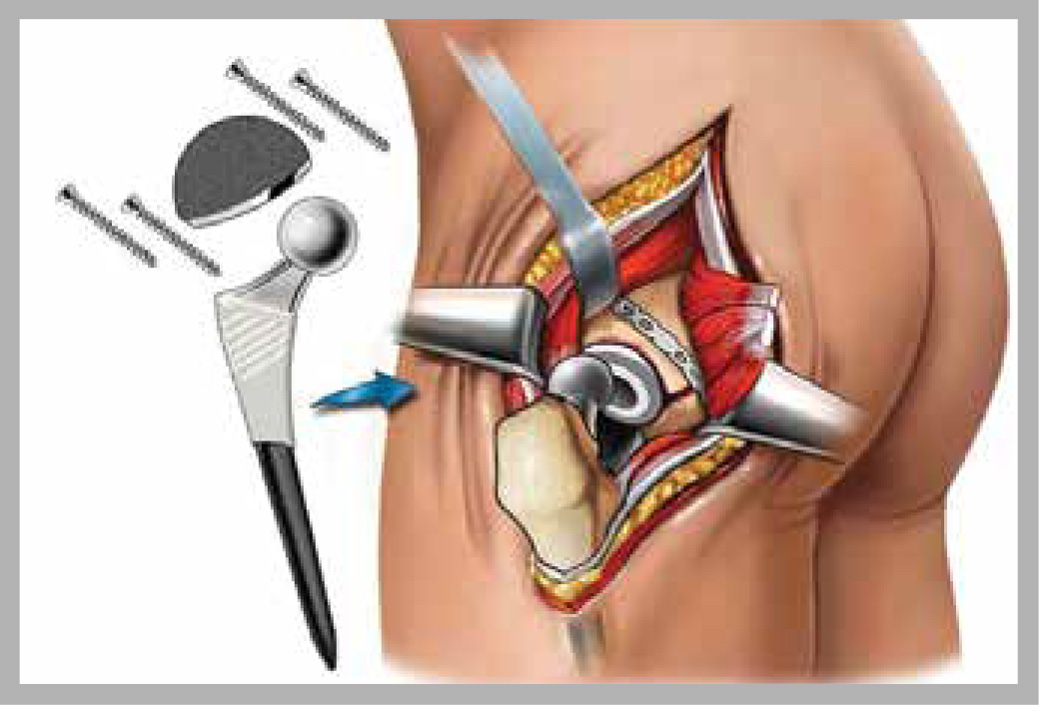Surgical specialties provided:
- Orthopedic Surgery
- Total Joint Surgery
- General Surgery
- Gynecology
- Urology Gynecology
- Fertility
- Colon Rectal
- Podiatry
- Gastroenterology
- Pedi Gastroenterology
- Ophthalmology
- ENT
- Pedi ENT
- Pain Management
- Pedi Urology
- Dermatology
Total Joint Replacement
During joint replacement, your surgeon will remove the damaged sections of your joint and bone and replace them with parts usually constructed of metal and very hard plastic. This artificial joint (prosthesis) helps reduce pain and improve function. The hardware will be anchored in your healthy bone and will function just as your natural joint would. Your prosthesis may look differently than the images below depending on the design and product. Whatever product is used, your surgeon will see that your new joint will work and function properly.

Shoulder

Knee

Hip
Enhnaced Recovery After Surgery (ERAS): The Team Approach
At Methodist Surgery Center | North Central, our team is focused on working with you and your family to get ready for your total joint replacement. You’ll receive support from every member of your care team to help you before your surgery and throughout your recovery. Enhanced Recovery After Surgery (ERAS) is a progressive approach to post-surgery care aimed at helping patients recover more efficiently from major procedures. It draws upon evidence-based medical practices to accelerate your return to normal life and optimal health. ERAS involves various components, including pre-surgery preparation, which entails improving your nutrition and physical fitness. It focuses on a well-structured approach that covers pain management, early nutritional support and early mobility. Before your surgery, you should:
- Review the information with your family, friends and caregivers.
- Complete a pre-assessment call with your Total Joint Coordinator.
- You may need to attend a physical therapy (PT) session with your caregiver so the therapist or nurse can help family members learn how to help you at home.
Outpatient Surgery Benefits to Patients
If you meet the requirements for outpatient surgery, you will receive many short-term benefits without losing any long-term results. Here’s why choosing outpatient surgery is often safer, more convenient and less stressful than at the hospital.
- Go home the same day instead of spending the night in the hospital
- Less risk of infection due to only surgical patients
- Increased comfort as you start rehabilitation at home during the early stages of your recovery
- Reduced recovery time due to multiple types of pain management
- Faster return to your everyday activities
Preoperative Work-up
Most arrangements for tests will be made through your doctor’s office. They may include one or more of the following:
- Laboratory tests
- History/physical examination
- X-rays
- Dental clearance (within 6 months)
- EKG
Pre-assessment Call
Prior to your surgery date, you will have a pre-assessment call. We strongly encourage you to include the person who will be caring for you after surgery. You can expect this call to last an hour or less.